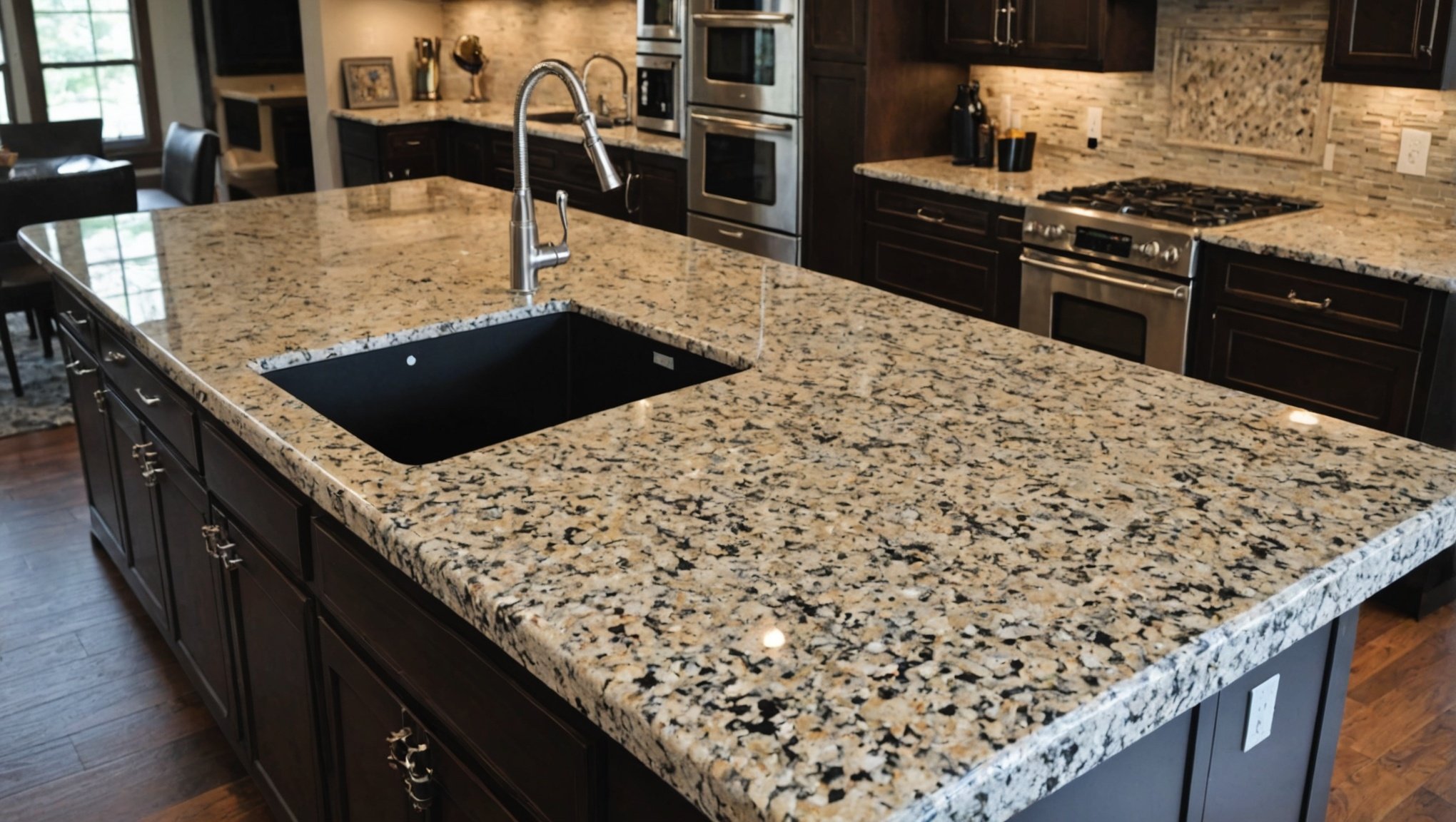The beauty of a granite countertop is timeless. With its natural charm, a granite surface can instantly elevate the aesthetics of your kitchen. However, maintaining these countertops can be a bit challenging for some. That said, a well-kept granite countertop can be the centerpiece of your kitchen for a lifetime. This guide will help you understand how to effectively care for your granite countertops to extend their lifespan.
Understanding the Nature of Granite
Before moving on to the maintenance steps, it’s crucial to understand the nature of granite. It’s a natural stone which is formed under extreme heat and pressure. This makes it hard and durable, but not completely resistant to damage. Its porous surface can absorb liquids, leading to stains and potential damage over time. Understanding these characteristics will help you take better care of your granite countertops.
Also to read : What are the latest innovations in dishwasher technology for UK homes?
Granite is a natural stone that is extremely durable, but it also has its vulnerabilities. Its porous nature makes it prone to absorbing water and other substances, which can lead to staining. Therefore, it’s important to know how to properly clean and seal your granite countertops.
Cleaning Granite Countertops
Proper cleaning is the first step in maintaining your granite countertop. As a basic rule, make sure you clean up spills immediately to prevent the liquid from seeping into the surface and causing stains. For daily cleaning, use a soft cloth or sponge with warm water and mild soap.
Topic to read : What is the best layout for a kitchen to enhance workflow efficiency?
Avoid using harsh or abrasive cleaners, as these can scratch the granite surface. Similarly, acidic or alkaline cleaning agents can also cause damage. For stubborn stains, a paste made from baking soda and water can be effective. Apply the paste to the stain, cover with plastic wrap, and leave overnight. In the morning, gently scrape away the paste and rinse with water.
Remember that deep cleaning of the countertops should be done only once or twice a year, depending on how heavily they are used. This will help avoid unnecessary wear and tear on the granite surface.
Sealing Granite Countertops
Sealing is a critical step in granite countertop care. A quality sealer provides a protective layer on the surface of the granite, reducing its porosity and increasing its resistance to stains and damage. The frequency of sealing depends on the type of granite and its usage. Light-colored granite tends to be more porous and may need sealing more often than darker varieties.
To seal your countertop, first, make sure it is thoroughly clean and dry. Apply the sealant according to the manufacturer’s instructions and allow it to penetrate the surface. After the recommended time, wipe off the excess sealer. The countertop should then be left to cure for at least 24 hours before using it.
Preventing Damage to Granite Countertops
Prevention is always better than cure, and this applies to your granite countertops as well. There are a few simple things you can do to avoid damage. Firstly, always use coasters under glasses or bottles to prevent water rings. Also, use trivets or mats under hot pots and pans to avoid heat damage.
Avoid standing or sitting on your countertops, as this can cause cracks or chips. Also, don’t use your granite countertop as a cutting board. The hardness of the granite can dull your knives, and the knives can scratch the surface, regardless of how minor the scratches might be.
Keeping your granite countertops free of clutter can also help prevent damage. Items left on the counter for long periods can lead to discoloration or scratches. Regular cleaning and periodic deep cleaning can help maintain the shine and durability of your countertop.
The Importance of Regular Maintenance
Regular maintenance is a must if you want to keep your granite countertop looking as good as new for a long time. This includes daily cleaning, occasional deep cleaning, and regular sealing. Remember, the more you care for your countertop, the longer it will retain its natural beauty and durability.
Negligence, on the other hand, can lead to scratches, stains, and other types of damage that can diminish the appearance of the granite and lead to costly repairs. So, make it a habit to take care of your granite countertop, and it will reward you with its timeless beauty for years to come.
Solutions for Stains, Scratches, and Etching on Granite Countertops
When talking about granite countertops, it’s important to mention the solutions for common problems like stains, scratches, and etching. These issues, if not treated in time, can rob the granite of its natural beauty. This section will guide you on how to address these issues and restore your countertop to its original glory.
Stains are common on granite countertops due to its porous nature. However, they can be effectively dealt with using a poultice made from baking soda and water. Apply this paste on the stained area, cover it with a plastic wrap, and let it sit overnight. The next day, gently scrape off the poultice and rinse the area with warm water. If the stain persists, repeat the process until it’s completely gone.
Scratches, on the other hand, may require professional attention, especially for deep scratches. However, minor scratches can be managed at home using a soft cloth and a specially formulated scratch repair kit available in the market. Remember, the use of harsh chemicals or abrasive materials can further damage the surface, so avoid them at all costs.
Etching, which is a result of the reaction between acidic substances and the natural stone, is another issue that granite countertops may face. If you notice a dull spot on your countertop, it’s likely etching. Unfortunately, etching cannot be cleaned or sealed away, but it can often be repaired by polishing. For severe etching, consulting a professional is advised.
Regular Inspection and Professional Assistance
In addition to regular care maintenance, it’s necessary to do periodic inspections of your granite countertops. Check for any signs of damage or wear and tear, such as scratches, stains, discoloration, or etching. Early detection of these issues can prevent them from worsening and extend the countertop’s lifespan.
If you’re unsure about any aspect of maintenance or if your countertop shows signs of severe damage, don’t hesitate to enlist professional help. Professionals can provide expert advice, do a thorough cleaning granite service, and even sealing countertops if necessary. They can also guide you on which based sealers are most suitable for your specific type of granite.
While granite countertops are more durable than most other types of stone countertops such as marble or quartz, they still require appropriate care and upkeep. Regular cleaning with a soft cloth and warm water, avoiding harsh chemicals, and using coasters and trivets can help maintain their beauty and longevity.
Conclusion
In conclusion, caring for granite countertops doesn’t have to be a daunting task. With the right knowledge and approach, you can ensure that your countertops remain as beautiful and durable as they were on the day they were installed.
Remember, the key to maintaining your granite countertops is understanding their nature and needs. Regular cleaning, prompt attention to spills, periodic sealing, and avoiding harsh chemicals and physical damage are essential steps in this process.
With proper care, your granite countertop will remain a source of pride and elegance in your kitchen for many years to come. So the next time you wipe down your countertops after dinner or admire the way they shine in the morning light, remember that a little effort goes a long way in preserving their timeless beauty.






